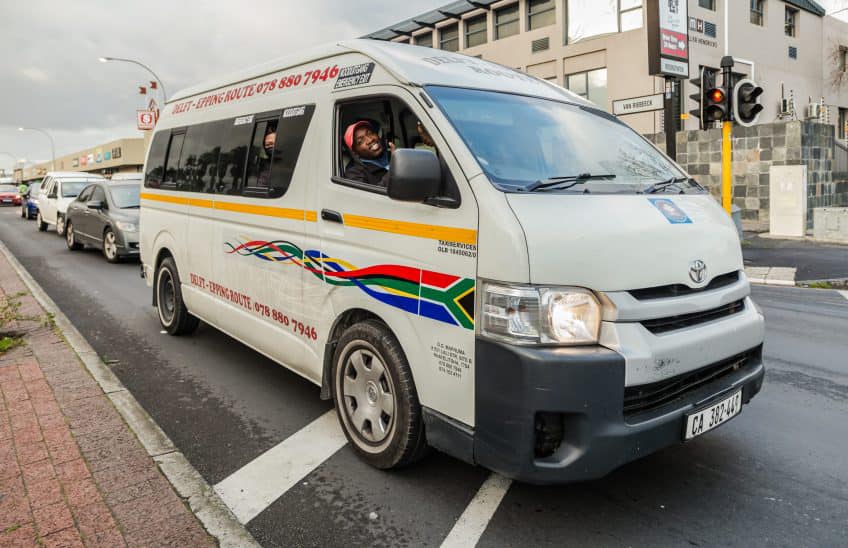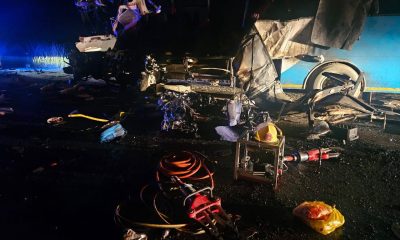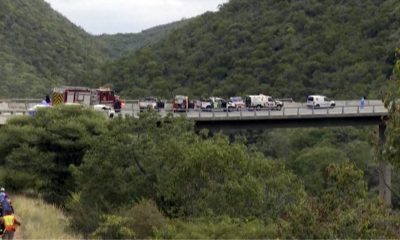News
Another Taxi Crash in KZN Leaves 20 Injured as Safety Concerns Mount

South Africa’s roads have once again witnessed tragedy after a multiple-vehicle crash involving two minibus taxis and a car left at least 20 people injured in Durban on Thursday evening. It was the third serious taxi accident in less than a week, intensifying calls for urgent reform in the country’s minibus taxi sector.
The N3 Crash: Thursday Evening Chaos
According to ALS Paramedics spokesperson Garrith Jamieson, the accident happened around 7pm on the N3 Pietermaritzburg-bound near the Brickfield off-ramp.
“Two fully laden taxis and a light motor vehicle had collided. Multiple casualties were found on scene, and more ambulances as well as advanced life support paramedics were dispatched to assist,” Jamieson confirmed.
Paramedics worked to stabilise 20 injured passengers, all of whom were taken to Durban hospitals for treatment. Metro Police have launched an investigation into the cause of the crash.
A Grim Week of Taxi Tragedies
The KZN accident wasn’t an isolated event. It marked the third major taxi-related crash in less than a week:
-
Wednesday, Eastern Cape: A taxi overturned on the R61 near Mthatha, killing a woman in her twenties and injuring 14 others. Passengers were ejected as the vehicle rolled several times. Paramedics described the scene as “chaos.”
-
Monday, KZN (Greenwood Park): Two people died and 15 were injured after a taxi crashed into two cars at the corner of Chris Hani and Effingham Road just before 5pm.
Three accidents, more than 50 lives disrupted, and at least three fatalities in a single weekyet these crashes represent only a fraction of the daily risks faced on South Africa’s roads.
Why Taxi Accidents Hit So Hard
For millions of South Africans, minibus taxis are not just transportthey’re a lifeline. The taxi industry moves over 60% of commuters daily, particularly in areas where public transport alternatives are limited or unreliable.
But with this reliance comes exposure to danger. Overloaded vehicles, driver fatigue, poor road conditions, and limited enforcement have long been cited as factors behind the country’s staggering road fatality rates.
Each accident, like those this week, is a brutal reminder of the human cost behind the statisticsfamilies waiting in hospital corridors, young breadwinners lost in crashes, and survivors left with injuries that can alter their lives permanently.
Public Outcry and Growing Frustration
On social media, anger has been mounting. One Durban commuter posted on X (formerly Twitter): “Every week it’s the same story. How many more lives must we lose before taxi safety is taken seriously?”
Another user added: “We rely on taxis every day because there is no alternative. The government must step in with stricter safety checks.”
A Cycle That Needs Breaking
The spate of recent accidents puts pressure on both the Department of Transport and the taxi industry itself to act. Safety campaigns often flare up after major crashes, but critics argue they rarely translate into sustained change.
Experts suggest a combination of stricter vehicle roadworthiness checks, better driver training, and tougher penalties for reckless driving could reduce the carnage. Others point to the urgent need for a more reliable integrated public transport system that reduces dependency on taxis altogether.
For now, investigations into this week’s crashes continue, but the pattern is clear: without decisive action, South Africa’s roads will remain a space where everyday commuters risk their lives simply trying to get home.
As families nurse their loved ones back to health in Durban and mourn the young woman lost in Mthatha, the country is left asking the same painful question: When will enough finally be enough?
{Source: The Citizen}
Follow Joburg ETC on Facebook, Twitter , TikTok and Instagram
For more News in Johannesburg, visit joburgetc.com



















